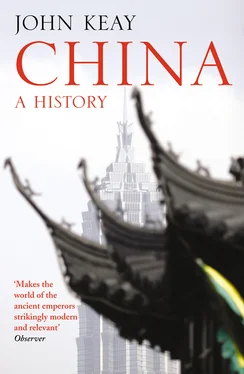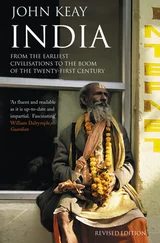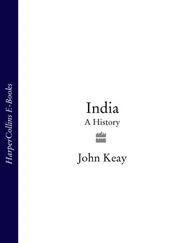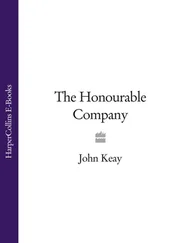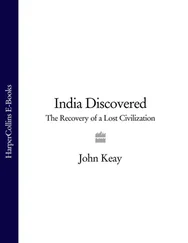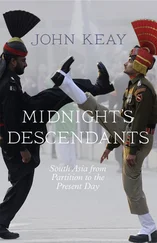‘Great indeed is Kong Qiu! He has wide learning but he has not made a name for himself in any field’ [scoffed a village wag].
The Master, on hearing this, said to his disciples, ‘What then should I make my speciality? Chariot-driving perhaps? Or archery? I think I should prefer driving.’ 20
Occasionally sarcastic but never resentful, the man known outside China as Confucius (a Latinisation of ‘Kong Fuzi’, ‘Master Kong’) would serve out the rest of his days as a poorly paid minor official in the irrelevant state of his birth. The Buddha found a large following in his lifetime; kings revered him and when (conventionally about 483 BC but probably later) he achieved nirvana, his relics were carefully preserved and piously distributed. But ‘the Master’, when he died in 479 BC, was mourned only by his small circle of disciples – and maybe Mrs Confucius, a lady so inconspicuous that nothing beyond her once having given birth is known. Nor was there any Confucian cult until several centuries later, by when the facts of his life had been decently obscured by legend, and a whole corpus of texts awarded to him, most of them erroneously. Seldom has posterity been so generous; seldom has such a dismal career ultimately been rewarded with such universal esteem.
That Confucius was a formidable scholar and an inspirational mentor with a well-defined mission is more relevant. In a thumbnail autobiography, his professional aspirations receive not a mention:
At fifteen my heart was set upon learning; at forty I was no longer perplexed; at fifty I understood Heaven’s Decree; at sixty I was attuned to wisdom; at seventy I could follow my heart’s desires without overstepping the mark. 21
Like Socrates, who was born just a decade after Confucius’s death, he believed that morality and virtue would triumph if only men would study. Take a town of 10,000 households, he told his followers. It would surely contain many who were as loyal and trustworthy as he, but there would be none who cared as much about learning as he. In the course of his intellectual odyssey, he may actually have written the short ‘Spring and Autumn’ Annals ( Chunqiu ) – he was certainly familiar with them – and he may have contributed to the compilation of other works such as ‘The Book of Songs’ ( Shijing ), a particular favourite. But the authorship of all such texts is problematic; their compilation in the forms that survive today resulted from several ‘layers’ of scholarship, not to mention dollops of blatant fabrication, spread over many centuries.
The same is true of parts of his collected sayings, known as The Analects ( Lunyu ), and from which the quotations above are taken. But it is thought that other parts genuinely represent what the Master said in conversation with his disciples. They thus have an identity and an immediacy that are more akin to those of the Gospels than, say, the jataka stories on which the Buddha’s life is based. Here then is what Laozi might have called a proper ‘shoe’, not just ‘a footprint’, a recognisable voice, the first in China’s history and arguably the greatest, addressing and exhorting the listener directly. Sometimes combative like an out-of-sorts Dr Johnson, the Master belies his dry-as-dust reputation, endearing himself to the reader much as he did to his disciples.
Confucius himself always disclaimed originality. Although there is little consensus about many of his key concepts – and even less about which English words best represent them – the gist of his teaching seems not especially controversial. Sons must honour their fathers, wives their husbands, younger brothers their elder brothers, subjects their rulers. ‘Gentlemen’ should be loyal, truthful, careful in speech and above all ‘humane’ in the sense of treating others as they would expect to be treated themselves. Rulers, while enjoying the confidence of the people and ensuring that they are fed and safe, should be attuned to Heaven’s Mandate and as aloof and constant as the northern star. Laws and punishments invite only evasion; better to rule by moral example and exemplary observance of the rites; the people will then be shamed into correcting themselves. Self-cultivation, or self-correction (a forebear of Maoist ‘self-criticism’), is the key to virtue. Of death and the afterlife, let alone ‘portents, prodigies, disorders and deities’, Confucius has nothing to say. It is up to the individual, assisted by his teacher, to cultivate himself. Not even he was born with knowledge; he is just ‘someone who loves the past and is diligent in seeking it’. 22
‘I transmit but do not innovate. I am truthful in what I say and devoted to antiquity.’ 23For Confucius, ‘the Way’ was the way of the past and his job was that of transmitting it or conveying it. The mythical Five Emperors, the Xia, the Shang and above all the Zhou – these were the models to which society must return if order was to be restored. ‘I am for the Zhou,’ he declared, meaning not the hapless incumbent in Luoyang but Kings Wu, Wen, Cheng and Kang of the early (Western) Zhou and of course the admirable Duke of Zhou. The rites of personal conduct and public sacrifice must be observed scrupulously; more important, they must, as of old, be observed sincerely. The ‘rectification of names’, a quintessentially Confucian doctrine, was a plea not for the redefinition of key titles and concepts in the light of modern usage but for the revival of the true meaning and significance that originally attached to them. More a legitimist than a conservative, Confucius elevated the past, or his interpretation of it, into a moral imperative for the present.
And there it would stay for two and half millennia. It was as if history, like Heaven, brandished a ‘mandate’ that no ruler could afford to ignore. But this general principle soon came to transcend the particular injunctions contained in the few, if pithy, soundbites of The Analects . Aboard the Master’s ‘conveyance’, and labelled as ‘Confucianist’ (rather than ‘Confucian’), then ‘Neo-Confucianist’, would be loaded all manner of doubtful merchandise. History would prove more tractable than Heaven.
WARRING STATES AND STATIST WARS
By the time Confucius died in 479 BC, the ‘Spring and Autumn’ period was fast fading into the crisis-ridden ‘Warring States’ period. Already the large state of Jin, once ruled by Chonger, was disintegrating. Not until the end of the century would it be consolidated into the three states of Han, Zhao and Wei (not to be confused with the river of that name), so presenting the Zhou king in Luoyang, their supposed superior, with an unwelcome fait accompli. When he did reluctantly accept it, it is said that the bronze cauldrons of Zhou, symbols of the ancient dynasty’s virtue, ‘shook’. Also shaken, in fact toppled, within a century of Confucius’s death was the ruling house of Qi, the largest state in Shandong. In a fin de siècle atmosphere ‘all now took it for granted that eventually the now purely nominal Zhou dynasty would inevitably be replaced by a new world power’. 24
The ferocious fight to the death among the strongest of the remaining states makes for grim telling. Standing armies take the field for the first time, new methods of warfare swell the casualties, and statecraft becomes more ruthless. Yet the period is by no means devoid of other arts. Stimulated by the disciples and heirs of Confucius, China’s great tradition of philosophical speculation was born. It was an era, too, of startling artistic creation in which traditional arts began to break free from the constraints of ritual. And from the recent excavation of a host of contemporary texts it appears to have been an important age for medicine, natural philosophy and the occult sciences. Far from being a cultural cesspool, the ‘Warring States’ period, like other interludes of political instability, sparkles with intellectual activity and artistic mastery.
Читать дальше
